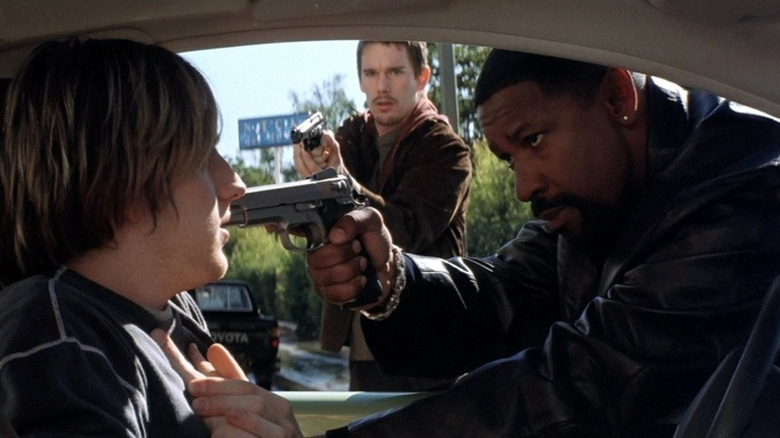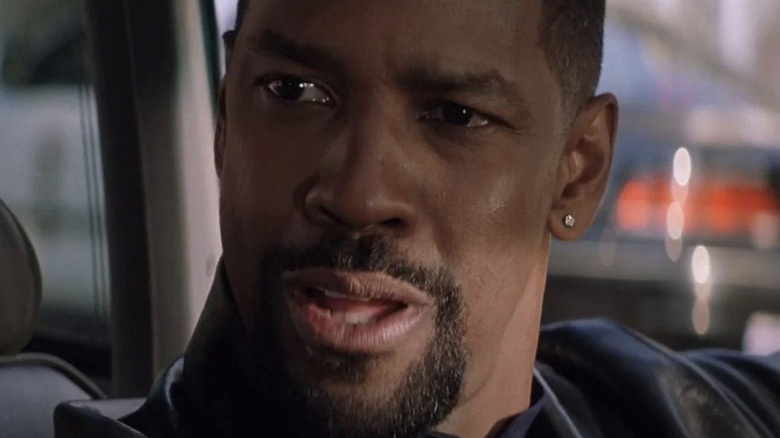That Training Day Prequel Is Still Happening, And Now It Has A Title
Over the summer, California Governor Gavin Newsom signed the SB144 bill, granting an extra $330 million in tax credits to the film and TV industry, on top of the $330 million the state already gives to Hollywood. As part of its incentives program, such credits enable companies to offset their state tax liability, and to keep production dollars in-state. Newsom is expected to give his signature to another bill (SB485) which will extend those credits through the year 2030. The California Film Commission has today announced the latest wave of tax credits for production, out of a frosty $149.2 million in credits across 30 films. Netflix came out once again with the lion's share at $60.3 million in state credits, beating out Disney ($27.2 million) and Amazon ($16 million) for a bigger slice of the pie. Warner Bros. snagged $16.2 million, and one of the first projects on the docket is a "Training Day" prequel from WB Studio Enterprises.
"Training Day: Day of the Riot" is set before the events of Antoine Fuqua's 2001 crime drama "Training Day," which stars Denzel Washington and Ethan Hawke as a crooked L.A.P.D. narcotics cop and his greenhorn trainee. Together, the pair deals with the fallout from Washington's character's shady dealings over a twelve-hour period. The original is currently streaming on HBO Max, and highly recommended for its taut pacing and incredible performances by the entirely talented cast. Don't take my word for it: Both Hawke and Washington got Oscar nominations for their efforts, with Denzel bringing home a Best Actor statue for his portrayal of Detective Alonzo Harris.
The prequel is said to hover around the volatile time of the L.A. Riots that kicked off after four L.A.P.D. officers were acquitted of assault in the beating of Rodney King, on April 29, 1992.
Life's A Trip, Qué No?
Mere months after "The Matrix Resurrections" quipped that Warner Bros. will shamelessly dig up IP "with or without" those who made it special, the studio is back in the saddle again, carrying the corpse of Detective Alonzo Harris, he to whom King Kong cannot compare. Harris' character figures into the new story in a powder keg of a place and time: the '92 L.A. Uprising. Racial unrest came to a head after a systemic miscarriage of justice: Not a single one of the four officers filmed beating Rodney King would be convicted of assault. When the last fires had been put out and the final counts tallied, over sixty people had been killed and over two thousand injured, and more than 12,000 had been arrested over the five days of destruction. Korean-American-owned stores took the brunt of the property damage. The event highlighted a mess of contributing factors, including economic disparities (to include unequal job opportunities and services), racial segregation, and abuse of police power.
Harris' placement in this era suggests that we might meet the lawman at the nexus of a moral crisis, maybe at the moment when his ethical compass goes wonky. It was a time when the nation had to reckon with a poor justice system and the explosive reaction to a dream deferred. Perhaps here, Alonzo is, like so many Angelenos in 1992, pushed to a breaking point. Those who have seen the 2001 original know where the path ends, but maybe now we'll get to see where it begins with "Training Day: Day of the Riot."

